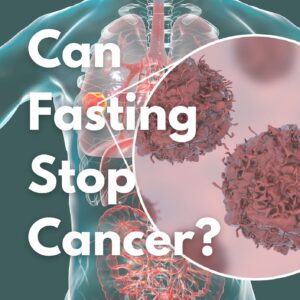As Americans, we’ve been misled. We’ve been fed a false narrative by scientists, USDA, American Heart Association, medical professionals and media for decades.
While promoting certain foods as “Heart Healthy” and “Superfoods”, they vilified others. In 1984 the USDA created the Food Pyramid and placed grains, vegetables, and fruits as the foundation of it with 6-11 servings daily. Meanwhile, protein and saturated fat became attacked. Yet, these were the primary food sources our ancestors ate. This led to the overconsumption of carbohydrates and a change in the primary fuel source for Americans.
This all started by one American physiologist Ancel Benjamin Keys, who was brought in to study the influence of diet on health in the early 1940’s and developed K-Rations for our military troops while at war. He completed several other studies over the next decade on starvation and the affects of high altitude on the human body. It was in the 1950’s that he originally hypothesized that saturated fat caused heart disease. He studied wealthy American business executives, presumably among the most well-fed people in the country, post-war time. They had high rates of CVD (cardiovascular disease), at the same time post-war European countries had lower rates of CVD, due to limited food supplies and lack of indulgent foods. He created the “Seven Countries Study”, and he cherry-picked the countries he was to include in the study. He chose Japan and six countries in Europe. This study was the largest epidemiological study in history and has become the benchmark for the correlation of saturated fat and cholesterol, leading to CVD. The early critics of this study pointed out that he purposely left out France, which had, and still has one of the highest intakes of saturated fat in their diet, yet one of the lowest rates of CVD, because it didn’t support his theory. The island of Crete was included in this study, and he traveled and recorded data there, while they were celebrating Lent (the holiday in which Catholics abstain from eating meat, incorporate fasting, and don’t snack during the 40 day period). This would certainly alter the data if they participated in the study during this time. They would have reported that they didn’t eat meat or animal products, yet had very low rates of heart disease. Also, circling back to the origin of the study, the American businessmen wouldn’t have been affected like their European contemporaries. They were from Minnesota, where they would not have been impacted by food rationing or the limited production of sugary-indulgent foods like in European cities.
The simple fact that Ancel Keys didn’t include sugar in his hypothesis or research, and only focused on saturated fat as the culprit, flawed the study. The conclusions reported by this particular study changed American food recommendations and history forever.
In 1961 Ancel Keys was featured on the cover of Time Magazine, and the American Heart Association went from being a small poorly funded non-profit, to becoming highly funded by food manufactures and corporations. The AHA’s “low-fat” and “heart healthy” guidelines changed the landscape of food as we know it. Ironically, proceeding this, the number of Americans with CVD and heart disease began to explode in this country. It turns out that 6-11 servings of grains, starches, vegetables, and fruits get broken down into sugar, as all carbohydrates do. Excess sugar leads to inflammation, poor metabolic health, and obesity.
Most modern day diseases share the common risk factors of obesity and inflammation. Obesity is caused by insulin resistance, which is from the constant over-consumption of carbs and overriding the natural balance of the hormone Insulin. Inflammation is the result of
a diet high in processed foods and the consumption of carbs (sugar) as the primary fuel-source. The medical term for both is “poor metabolic health”. “A growing body of research suggests that excessive consumption of processed foods contenting dietary sugars or high fructose corn syrup (HFCS) is strongly linked to the development of obesity, metabolic syndrome, and cardiovascular disease (CVD).” PMID: 36119103
Our bodies will always choose to burn glucose (the simplest form of sugar) first. Then, when the short-term storage runs out, it switches to burning fat for fuel. If you’re constantly eating and refilling those glucose stores, you never tap your long-term fat storage. This leads to obesity and a negative cycle of poor health choices.
Metabolic Flexibility is the natural way for your body to cycle back and forth between using glucose (carbs/sugar) to fat (ketones/fatty acids) for fuel. This process should be seamless and should occur without us even noticing. Our ancestors thrived, built empires, and traveled the globe, long before refrigerators, processed and packaged foods, and places like Starbucks appeared on every corner. We were told to eat frequent meals and carry snacks in our purses and vehicles, so we would have energy for this fast-paced life. However, carbohydrates are addictive. This created a modern world of sugar-addicted “snowflakes” that can’t go half a day without melting and seeking their next carb fix.
The question is: “How do we reverse this condition to improve our health and use our stored energy (body fat)?”
The commonly prescribed fix is to eat less and move more. This sounds simple enough. Yet, it doesn’t work. Just like every modern diet is built on a caloric deficit plan. This sounds basic enough too, but this just leads to yo-yo dieting. In most modern diet plans, people lose excess weight through pure willpower. Then, when that fades, they gain it all back again and more. Does any of this sound familiar?
Here’s where a health coach becomes essential. Having a plan that restores your metabolic health is critical to your success. After thirty years of being a Strength and Conditioning Coach, we realized it’s not about outrunning your fork. It’s about the sourcing and timing of the fuel consumed. Lowering your carb intake and exercising more does work, but it requires a lot of discipline.
We created Fast.Eat.Live. to teach everyone a better way of timing fuel sources, so they can achieve metabolic health, and still enjoy foods they love, including carbs. We refer to specific days in our weekly plan as “Live” days, and highlight this word in our logo: Fast.Eat.LIVE. Embracing life well is what we advocate most, and we support bringing in favorite foods and drinks that make our clients the most happy. Because of this, we often get photos from members on these “Live days” celebrating with a cocktail, in special places, and with those they love. That’s the brilliance of Fast Eat Live!




